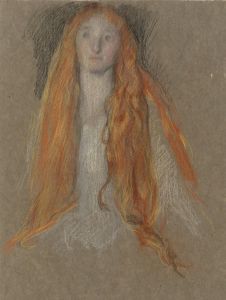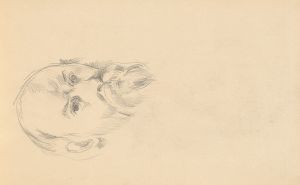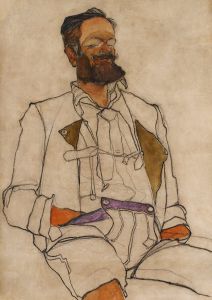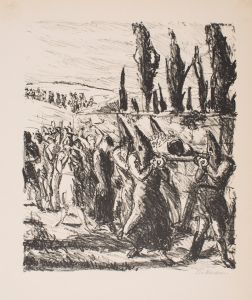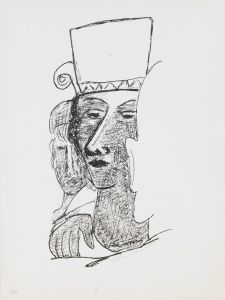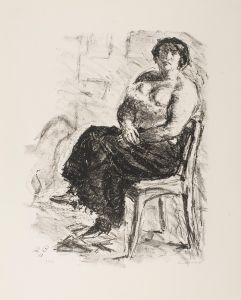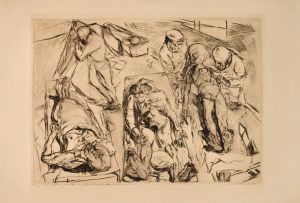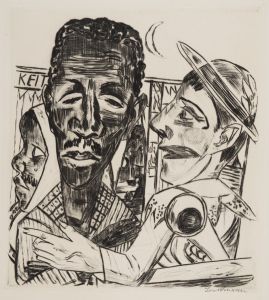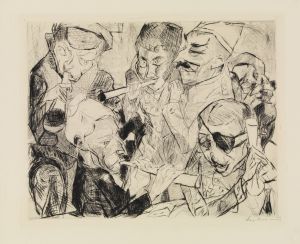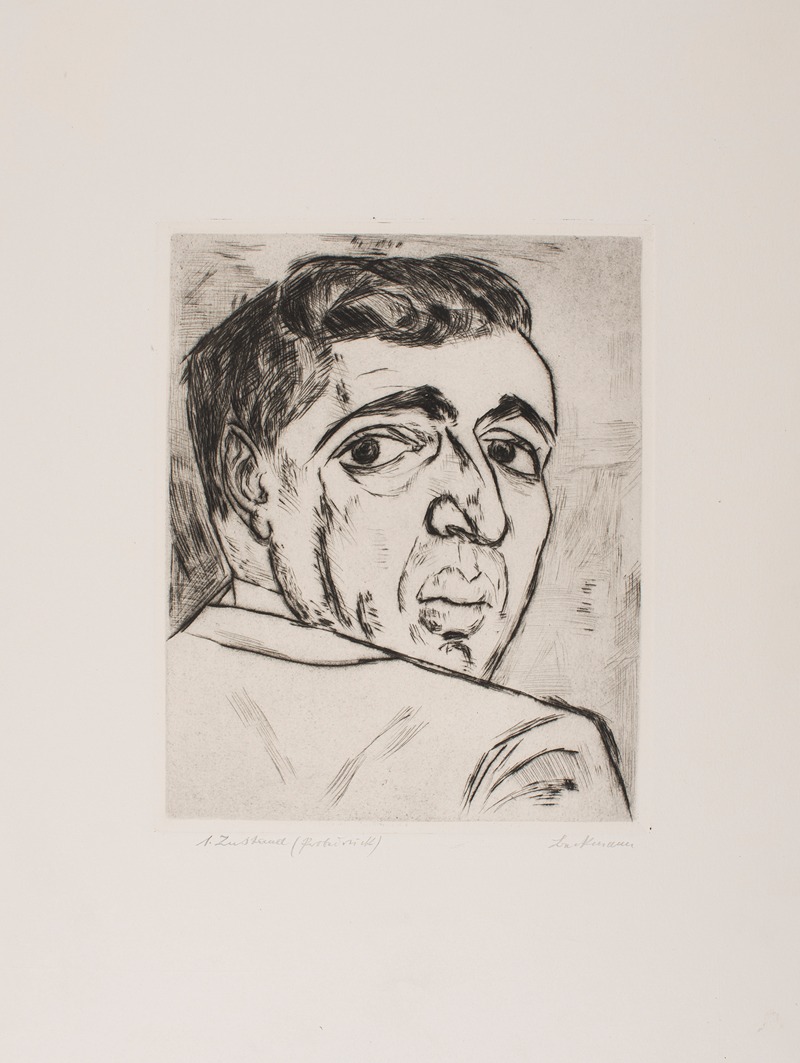
Portrait of I. B. Neumann
A hand-painted replica of Max Beckmann’s masterpiece Portrait of I. B. Neumann, meticulously crafted by professional artists to capture the true essence of the original. Each piece is created with museum-quality canvas and rare mineral pigments, carefully painted by experienced artists with delicate brushstrokes and rich, layered colors to perfectly recreate the texture of the original artwork. Unlike machine-printed reproductions, this hand-painted version brings the painting to life, infused with the artist’s emotions and skill in every stroke. Whether for personal collection or home decoration, it instantly elevates the artistic atmosphere of any space.
Max Beckmann's "Portrait of I. B. Neumann" is a significant work within the oeuvre of the German painter, who is renowned for his contributions to the Expressionist movement. Beckmann, born in 1884 in Leipzig, Germany, is celebrated for his distinctive style that often combines elements of Expressionism with a more personal, introspective approach. His works frequently explore themes of human experience, often reflecting the turbulent socio-political landscape of early 20th-century Europe.
The subject of this particular portrait, Israel Ber Neumann, was a prominent art dealer and gallery owner who played a crucial role in promoting modern art during the early 20th century. Neumann was a key figure in the art world, particularly known for his support of avant-garde artists. His galleries in Berlin and later in New York were instrumental in introducing contemporary European art to a broader audience. The relationship between Beckmann and Neumann was one of mutual respect and professional collaboration, with Neumann being a significant supporter of Beckmann's work.
Painted in 1921, "Portrait of I. B. Neumann" captures the essence of its subject through Beckmann's characteristic use of bold lines and a rich, dark palette. The portrait is notable for its psychological depth, a hallmark of Beckmann's portraiture. The artist's ability to convey the inner life of his subjects is evident in the intense gaze and the thoughtful expression of Neumann, which suggest a man of intellect and determination.
Beckmann's technique in this portrait, as in many of his works, involves a meticulous attention to detail and a strong sense of composition. The use of color and form in the painting reflects Beckmann's mature style, which had evolved from his earlier, more overtly Expressionist works to a more nuanced and personal approach. The portrait is both a representation of Neumann as an individual and a reflection of the broader cultural and artistic currents of the time.
The historical context of the painting is significant, as it was created during the Weimar Republic, a period of great artistic innovation and experimentation in Germany. This era saw the rise of many modernist movements, and Beckmann was at the forefront of this cultural renaissance. His work during this time often grappled with the complexities of modern life, and his portraits, in particular, are noted for their ability to capture the psychological and emotional states of his subjects.
"Portrait of I. B. Neumann" is housed in a private collection, and as such, it is not as widely accessible as some of Beckmann's other works. However, it remains an important piece within his body of work, exemplifying his skill as a portraitist and his ability to engage with the personalities and cultural figures of his time.
In summary, Max Beckmann's "Portrait of I. B. Neumann" is a testament to the artist's mastery of portraiture and his deep engagement with the cultural milieu of early 20th-century Europe. Through his depiction of Neumann, Beckmann not only captures the likeness of a key figure in the art world but also reflects the broader themes of identity and modernity that permeate his work.






